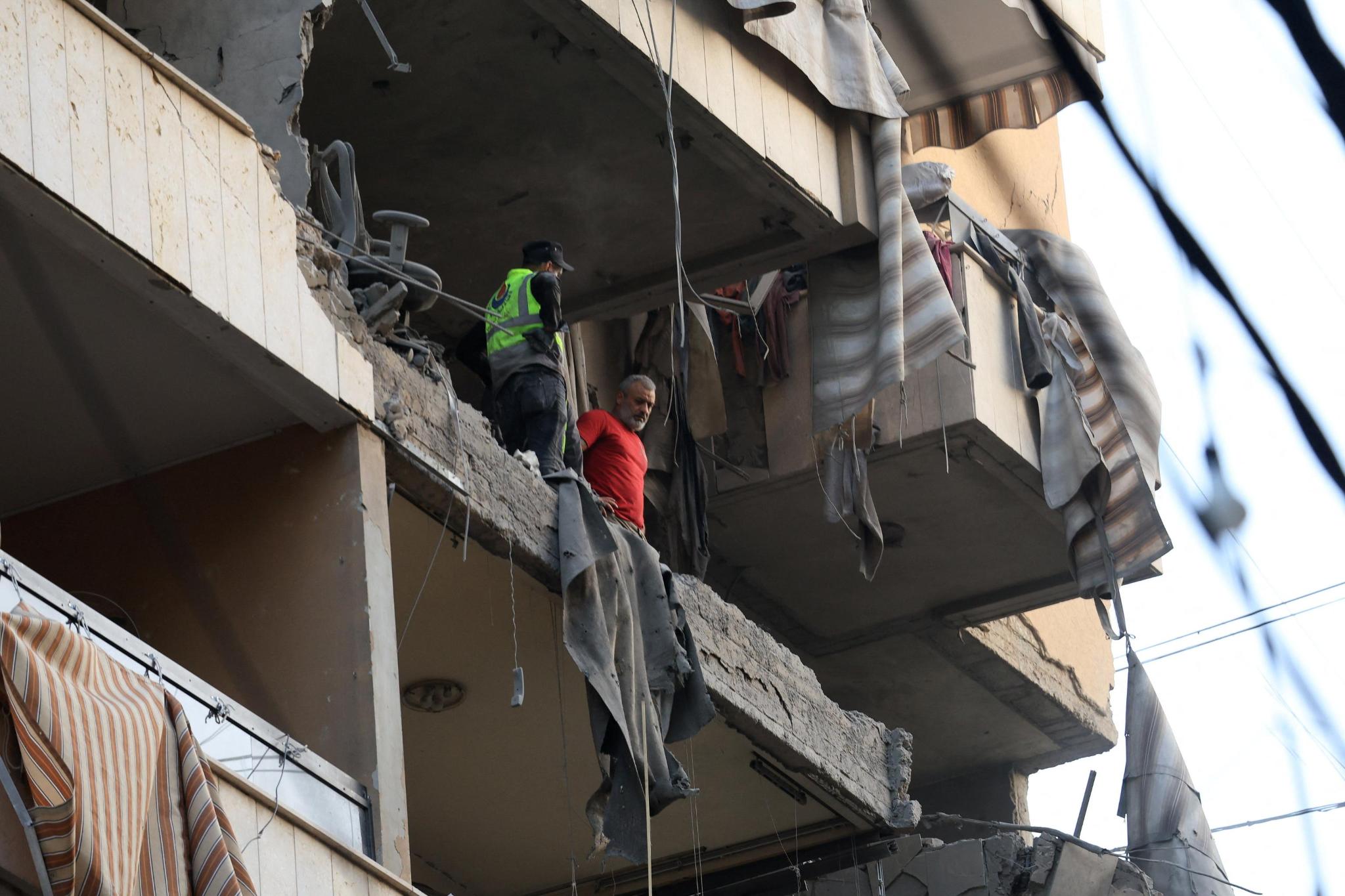A week and a half ago, the UN Human Rights Office issued a statement reporting that Israel had killed 114 civilians since the beginning of the ceasefire in Lebanon. Today, they updated that number to 127 confirmed civilians, entirely on the basis of a single attack.
That attack was last week’s strike on a mosque and adjoining parking lot in the southern Lebanese Palestinian refugee camp of Ain al-Hilweh. That strike killed 13 people and wounded dozens. The UN is saying all 13 were civilians, including 11 children.
That is not to say those were the only 13 civilians that Israel has killed in southern Lebanon in the past 12 days. The UN’s count only includes confirmed, verified civilians, and the smaller attacks take longer to conclude who was killed and whether they have even a tangential claim that was a military target.

People inspect a damaged building after an Israeli military strike in Beirut’s southern suburbs, Lebanon, November 23, 2025. REUTERS/Mohamed Azakir
Last week’s killing of al-Mansouri school principal Mohammad Shuweikh and the killing of a civilian municipal employee and some 30 sheep two days later are both likely to ultimately end up on the list, even if the IDF’s narrative is that everywhere and always these are “Hezbollah.”
The UN is calling for a prompt and impartial investigation of the Israeli attacks on apparent civilian targets, saying it is vital that those responsible for the attacks are brought to account.
The ceasefire reached its one-year anniversary yesterday, and was marked by well over 1,000 Israeli strikes on Lebanon as well as an ongoing occupation of parts of the south. There is also fear of even further escalation by the Israelis.
That Israel maintains they are “committed” to the ceasefire is noteworthy, though the fact that the comment came in the immediate wake of Israel attacking an apartment building in the Lebanese capital city of Beirut must cause doubts about what exactly that entails.


